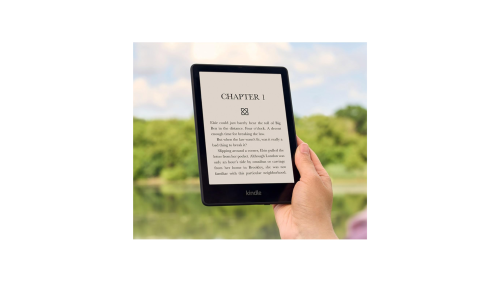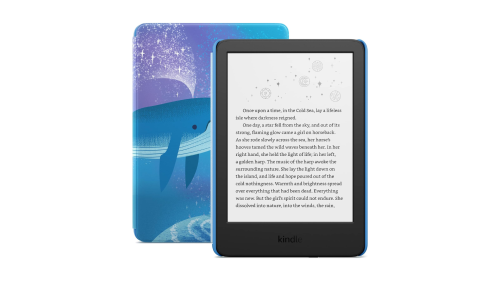The following is excerpted from 101 Health Tips For Police Officers: How To Be Physically, Mentally, Spiritually, and Socially Fit For Duty by Scott Medlin, who has worked as a police officer since 2007.
It is okay, we can put all that stuffy rhetoric to the side - it is just you and me. Yes, of course you believe in “honor,” “civic duty” and “making the world a better place.” Of course you believe in being a positive role model for children and stopping bad guys. Still, it is also okay to just admit that policing is fun for other reasons. It does not have to be 100% altruistic, because honestly, this job really can be fun and, dare I say it, even entertaining when you take the proper steps to stay healthy.
That is just the thing, though – most officers do not do enough to take care of themselves, which in this business, presents a serious problem. If you do not actively work to offset the diverse demands of this career, then you will most certainly experience health problems of one form or another. None of us are immune to it.
This book will not dive into the neurochemistry and other health concepts of the mental/physical health issues officers face, because I already covered that in “Mental Health Fight of the Heroes in Blue.” That book addresses a harrowing and heavily understated problem within the law enforcement community: officer suicide. More officers died in 2019 by their own hands than in the line of duty, and that is simply not acceptable. We have to make sure that officers understand the importance of the little things when it comes to mental and physical health, which is why that book got into the specific mechanisms of depression, addiction and other stress-related issues.
Today, however, I am bringing you a more lighthearted, yet equally important, list of strategies and techniques you can use to fortify your mind, body, spirit and social being against the inevitable stressors of this job.
I have 101 snippets of wisdom for you, in fact, that I drew from my own experiences, those of my colleagues and expert opinions to create. There will also be very dynamic firsthand accounts from fellow officers and a former law enforcement spouse. The stories of these individuals are sure to open your eyes to the absolute obligation to maintain your health and well-being. We all want to be healthy, right?
I am not expecting you to memorize 101 pieces of information verbatim and create some hellishly long checklist for yourself. Instead, my hope is that you already do a few of these things and that you can make small adjustments to accommodate as many more of these items as you can. Some techniques are more in-depth than others, but they are all important. As always, your results are a direct indication of how much work you put in.
This book is intended to be informative, but not in a dry and academic way. I have included relatable anecdotes to make it fun for you as well. I am modeling it this way for two reasons: First, I do not want you to get bored (duh). Secondly, staying healthy does not have to be boring either, so I modeled this book to reflect that. I will go ahead and apologize for the random inside jokes throughout the book that might stump and/or confuse you. Some friends/fellow officers said they would burn their copies of the book if they were not mentioned. Now back to what is important for you.
If you want to get the most out of this career instead of just going through the motions and becoming jaded, then this is your list. This is how you do better than simply staying alive. These 101 items will help you to feel happier and healthier, even when filling out felony paperwork or dealing with a rough stretch of shifts.
Apologies for the legal jargon again, but this is the part where I give you the disclaimer:
As I mentioned in “Mental Health Fight of the Heroes in Blue,” I am not a medical professional. This book does not count as treatment; it is strictly a guide based on my years of being in counseling and researching wellness and health, as well as my own experiences as an officer. Also, please read and abide by any directions and warning labels on supplements I mention in this book. Use at your own discretion and/or seek a doctor’s opinion before use. In other words, it is not my fault if you drink too much colloidal silver and turn blue!
These techniques can help you, but only if you commit. It is up to you to help yourself in the end. Let the games begin!
Chapter 1: Hey Body, It Is Me: Physical Health Tips for Police Officers
It is not just about the mile time or the bench press max. Fitness is important, but health and wellness are not the same things. If you really want to make some positive changes that will equip you for anything, then it’s time to look at all aspects of health. And that means starting with the diet.
Intermittent fasting
I know, I know, it sounds like a dumb social media trend on the surface. Some even go so far as to say that intermittent fasting is self-torture, but the truth is nothing so melodramatic. In fact, intermittent fasting is a fantastic way to burn fat, and not in the way that you are thinking.
You can still absolutely get 3 meals a day in, but now, you have an 8-hour window to do so. While you are fasting, your insulin levels drop significantly because your body does not have to worry about curbing those pesky blood sugar spikes associated with large and/or frequent meals. When insulin levels are low, your body’s fatty tissue is broken down at a faster rate.
We are also finding out that serum concentrations of human growth hormone are much higher in the fasting phase as well. Do you see the potential here? Simply by sequestering your mealtime to a slightly smaller window, you help your body to both burn fat and build muscle!
I do not have to tell you how amazingly helpful this can be for a police officer. The movies can portray us however they want, but we know that much of the job at times is sitting on your rear end, and that does not bode well for…well, your rear end. We need all the help we can get in terms of fat reduction and muscle growth.
Spinach and kale
You are not a little kid anymore. There is no spoonful of sopping, steamed spinach being “airplaned” to your mouth, so do your best to shake off that traumatized feeling when you hear these words, because it does not have to be that way.
There are plenty of ways to sneak these items into your diet and/or dress them up that will satisfy even the pickiest of palates. Plus, I can confidently state that that spinach and kale will give you a clearer mind and a much less sluggish body than that giant cookie you impulsively groped for by the gas station coffee pots. Guilty as charged!
In fact, spinach and kale contain “neuroprotective” ingredients, meaning that they can armor your brain against attacks from serious diseases. Even people who already have dementia, Alzheimer’s, or general cognitive decline can slow the progression of these processes with the nutrients found in spinach and kale.
Remember, you are in a safe space. You are a big boy or girl now, and nobody’s spoon-feeding you. You can throw in a small dab of butter with it if you want. Just get those greens in there!
Conquer the “department snacks” wheel of temptation
It is the same old story. You want to be good. You are trying really hard to be good. Me too! But something about the neurochemistry of unexpected, FREE snacks being shoved in your face is just simply too much for many of us officers.
Often, these snacks are donated by community members. I am not advocating at all that you decline them publicly, of course, because that is not an awesome way to return such a well-intended gesture. Since these snacks are usually salty, sweet, fattening, or all of the above, however, it is your job to conquer this wheel of temptation.
Here is a little advice I use for just such an occasion. Expect the snacks to be there. Know that they are coming and prepare yourself before your eyes and nose are bombarded by the sights and smell that makes you salivate. If the snacks are actually there when you walk in, you will be ready. If they are not, you will have one less thing to push yourself through that day.
Another technique, chipped in by the venerable Les Brown, so you know it is good, is to actually practice and emphasize the act of refusing the treats. You may look and feel crazy at first, but hear me out. Walk in, see the snacks, leave the room without touching them and repeat. It is just like a workout for your willpower. The more you do it, the better you will be in the future.
Combine these two methods and practice them regularly, and you will overcome the department snacks wheel of temptation for sure!
Ixnay on the late meals and snacks
Hate to say it, but even if what you are eating is semi-healthy, when you eat it can drastically affect metabolism for better or worse. It may seem the natural thing to do – falling asleep after a big meal – but this kind of sentiment does not bode well for your health in real life.
When you eat right before going to bed, your body has to spend a lot of energy in those initial hours of sleep digesting that meal or even snack. This means that your ability to enter a restful state is compromised, or at the very least, distracted.
Even if you simply cannot bring yourself to jump on the intermittent fasting wagon (seriously, the water’s fine), then at least try eating early enough to give yourself more than three hours of awake time for digestion. I am not even saying you have to wolf down boiled cabbage and lentils every meal – just eating earlier is a great baby step into a healthier diet.
By “healthier,” I do mean in terms of weight loss – not just longevity. Eating early enough and allowing your body the opportunity to digest means that you can get a serious head start on not just absorbing the fats and other nutrients, but putting them to use (instead of storing them).
Stretch!
Flexibility is a woefully underappreciated part of so many fitness routines. In fairness, athletes tend to be more vigilant about stretching because of savvy coaches. However, this massive resurgence we have seen in the popularity of “deadlifting, bro” culture is totally remiss to stretching. The “bro” was for Dover.
Keeping your muscles flexible, long and lean “equals youth,” as one of my fitness instructors, Sean Vigue, likes to say. Many of us follow this weird misconception that, if you are not in agonizing pain because you just pulled a hamstring or strained your back, then you do not need to stretch.
The truth is not so convenient. Your muscles and the fascial layer that covers them will absolutely twist, shorten, develop toxic metabolites (knots), and pull at your bones until your posture is so out of place that you look like Quasimodo.
Then comes the neck pain, back pain, vertebral malalignments, headaches, weakness, and the beer gut to match it. This is guaranteed if you do not stretch regularly. It is not just about preparing for a workout but optimizing your postural mechanics so you can work, live, eat, play with your kids, sleep, and you know, live without pain.
Stretch your ever-loving self!! You might just feel relieved.
This article, originally published on January 01, 2021, has been updated.








